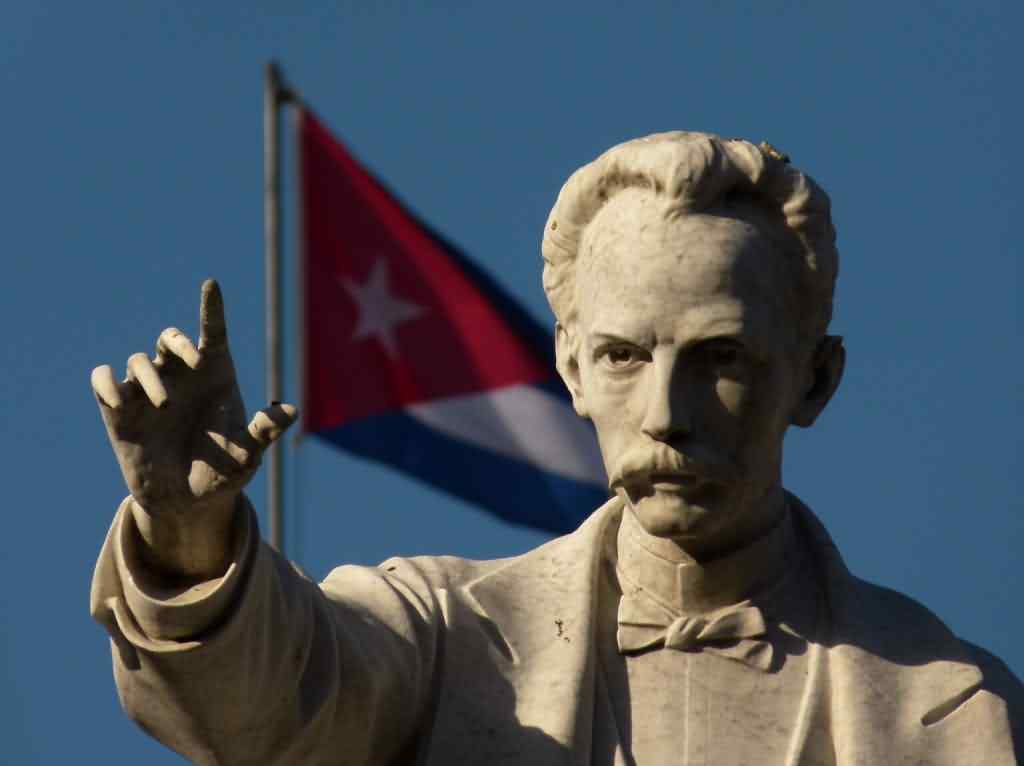
Havana, May 19th. - Cuba pays tribute today to the José Martí National Hero on the 130th anniversary of his fall in combat during the fight for the island's independence from Spanish colonial rule.
Called the Apostle, Martí was a distinguished thinker, renowned for his journalistic work and as a poet, a legacy that is reflected in texts such as The Golden Age (1878-1882), the Simple Verses (1891) and Our America (1891).
He was the founder of the Cuban Revolutionary Party and organizer of Cuba's war of independence, an offensive against the rule of the Spaniards where the teacher fell into combat, on Sunday, May 19, 1895 in Dos Ríos.
Also known as the most universal of Cubans, Martí lost his life when in his first confrontation he was hit by a closed discharge of enemy rifles from which he received several impacts.
Despite the recommendation of the General-in-Chief of the Liberating Army, Máximo Gómez, to remain in the rear, Martí left the front accompanied by his assistant, because his ethics and sense of duty did not allow him to lag behind those he had called for the fight.
Martí's body was recognized and collected by the enemy, who withdrew under the constant attacks of Cubans committed to recovering it, and was buried in the nearby town of Remanganaguas.
The remains were eventually buried in the necropolis of Santa Ifigenia, in Santiago de Cuba, in the east.
In a letter written by the Apostle of Cuba's independence to his Mexican friend Manuel Mercado, a day before his fall in combat, he said:
I am already in danger every day of giving my life for my country and my duty (...) to prevent in time, with the independence of Cuba, from spreading through the Antilles by the United States and falling, with that force further, on our lands of America.
In the letter, unfinished by the arrival at General Bartolomé Masó's camp with his troops, Martí said that how much I did to this day, and I will do, that is for that, in reference to his concern about the danger Washington posed to the region.
The letter has been considered by the National Hero scholars as his political will and in it he shows his marked anti-imperialist character and his opposition to the annexationist currents.
José Martí remains, more than a century after his death, a central figure in the collective historical memory of Cuba and an intellectual reference for humanity.
During these days, there are various initiatives organized in Cuba and in other countries of the world to remember the life and work of the Apostle. (Text and photo: PL)